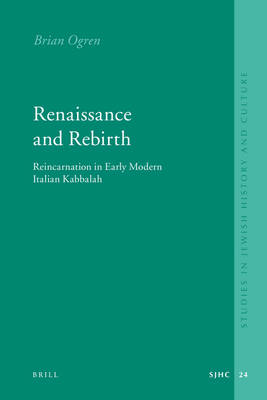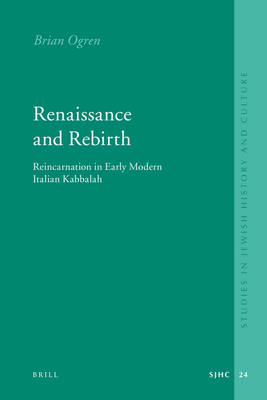
- Afhalen na 1 uur in een winkel met voorraad
- Gratis thuislevering in België vanaf € 30
- Ruim aanbod met 7 miljoen producten
- Afhalen na 1 uur in een winkel met voorraad
- Gratis thuislevering in België vanaf € 30
- Ruim aanbod met 7 miljoen producten
Zoeken
€ 256,45
+ 512 punten
Omschrijving
Metempsychosis was a prominent element in Renaissance conceptualizations of the human being, the universe, and the place of the human person in the universe. A variety of concepts emerged in debates about metempsychosis: human to human reincarnation, human to vegetal, human to animal, and human to angelic transmigration. As a complex and changing doctrine, metempsychosis gives us a well-placed window for viewing the complex and dynamic contours of Jewish thought in late fifteenth century Italy; as such, it enables us to evaluate Jewish thought in relation to non-Jewish Italian developments. This book addresses the problematic question of the roles and achievements of Jews who lived in Italy in the development of Renaissance culture in its Jewish and its Christian dimensions.
"Throughout the book, Ogren demonstrates the scholarly pertinacity and intellectual and linguistic versatility that crosscultural intellectual history requires. He finds and digests the essential studies and obscure remarks, in modern scholarship as well as from the fifteenth century, that substantiate the argument, and he constantly strives to discern larger patterns. This research will reward scholars who follow his leads." - Arthur M. Lesley, in: Renaissance Quarterly 63.3 (2010)
"Throughout the book, Ogren demonstrates the scholarly pertinacity and intellectual and linguistic versatility that crosscultural intellectual history requires. He finds and digests the essential studies and obscure remarks, in modern scholarship as well as from the fifteenth century, that substantiate the argument, and he constantly strives to discern larger patterns. This research will reward scholars who follow his leads." - Arthur M. Lesley, in: Renaissance Quarterly 63.3 (2010)
Specificaties
Betrokkenen
- Auteur(s):
- Uitgeverij:
Inhoud
- Aantal bladzijden:
- 332
- Taal:
- Engels
- Reeks:
- Reeksnummer:
- nr. 24
Eigenschappen
- Productcode (EAN):
- 9789004177642
- Verschijningsdatum:
- 1/09/2009
- Uitvoering:
- Hardcover
- Formaat:
- Ongenaaid / garenloos gebonden
- Afmetingen:
- 160 mm x 241 mm
- Gewicht:
- 612 g

Alleen bij Standaard Boekhandel
+ 512 punten op je klantenkaart van Standaard Boekhandel
Beoordelingen
We publiceren alleen reviews die voldoen aan de voorwaarden voor reviews. Bekijk onze voorwaarden voor reviews.








